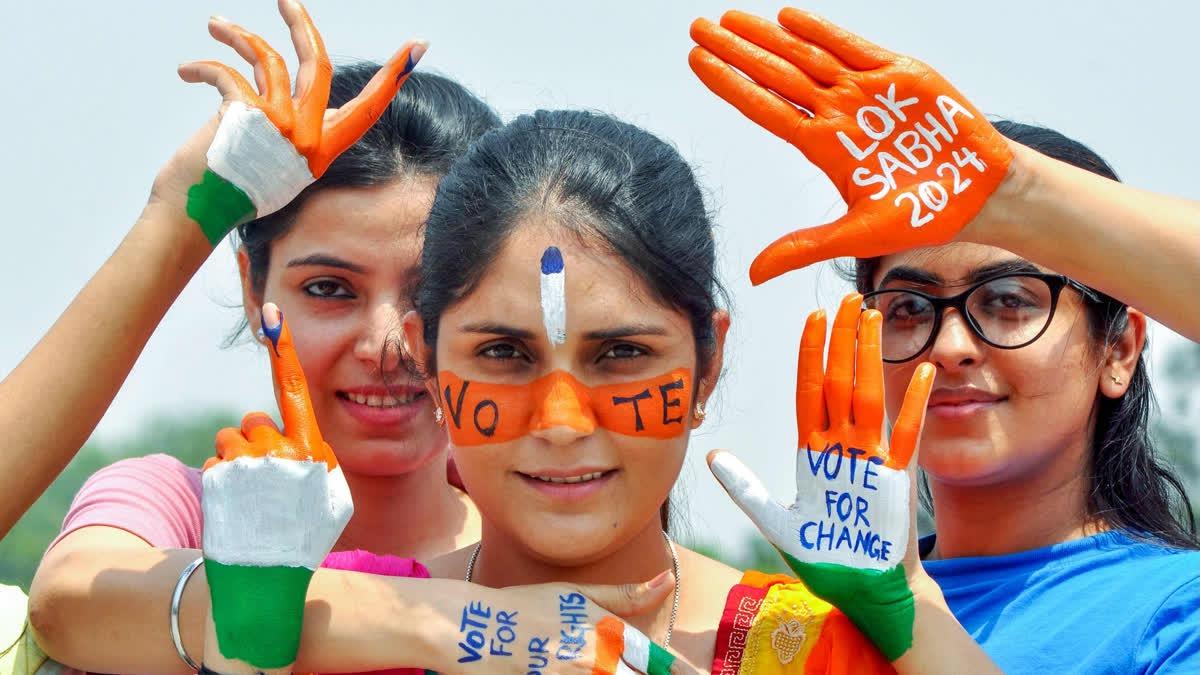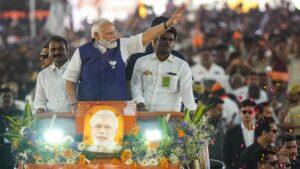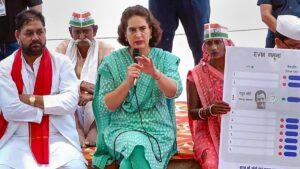The Crucial Fourth Stage of the 2024 Lok Sabha Elections | 2024 के लोकसभा चुनाव का महत्वपूर्ण चौथा चरण
As the Lok Sabha elections of 2024 unfold across the vast expanse of India, the nation finds itself at a critical juncture, particularly as it enters the pivotal fourth stage of polling.

As the Lok Sabha elections of 2024 unfold across the vast expanse of India, the nation finds itself at a critical juncture, particularly as it enters the pivotal fourth stage of polling.
With each passing phase, the political landscape evolves, alliances shift, and the electorate’s sentiments sway. However, it is the fourth stage that often proves to be the tipping point, shaping the trajectory of the nation’s governance for the foreseeable future.
This stage, comprising constituencies from diverse regions, holds immense significance due to several factors. Firstly, it encompasses regions that are politically and culturally diverse, representing a microcosm of India’s rich tapestry. From the bustling streets of metropolitan cities to the tranquil villages nestled in the hinterlands, the fourth stage encapsulates the varied aspirations and concerns of the Indian populace.
Secondly, the fourth stage witnesses the culmination of intense campaigning efforts by political parties vying for electoral success. Candidates crisscross the length and breadth of their constituencies, engaging in a flurry of rallies, roadshows, and public addresses, striving to sway the undecided voter and consolidate their support base. It is during this phase that the electorate closely scrutinizes the promises made by politicians, weighing them against the realities of their lived experiences.

Moreover, the fourth stage often serves as a litmus test for the incumbent government’s performance. As voters cast their ballots, they reflect on the policies implemented, the progress achieved, and the promises fulfilled by the ruling dispensation. It is an opportunity for citizens to hold their elected representatives accountable and demand accountability for unmet expectations.
Furthermore, the fourth stage is characterized by the emergence of regional players and alliances, which play a decisive role in shaping the electoral outcome. In states with strong regional identities, local issues take precedence over national agendas, prompting voters to align themselves with parties that best represent their interests. As a result, the electoral landscape becomes fragmented, with coalition politics gaining prominence and influencing the formation of the central government.
Against this backdrop, the fourth stage of the 2024 Lok Sabha elections is poised to witness a clash of ideologies, a battle for supremacy, and a reaffirmation of democratic principles. It is a testament to India’s vibrant democracy, where every vote counts and every voice matters.

However, amidst the fervor of electoral politics, it is imperative to acknowledge the challenges that confront the electoral process. From voter apathy to electoral malpractices, the fourth stage presents its own set of obstacles that must be overcome to ensure free, fair, and transparent elections. Therefore, it is incumbent upon the Election Commission and other stakeholders to uphold the integrity of the electoral process and safeguard the democratic ideals enshrined in the Constitution.
In conclusion, the fourth stage of the 2024 Lok Sabha elections symbolizes the essence of Indian democracy—a celebration of diversity, a contest of ideas, and a reaffirmation of the people’s sovereignty. As voters exercise their franchise, they wield the power to shape the destiny of the nation and chart a course towards a brighter future. In this journey of democracy, the fourth stage serves as a crucial waypoint, marking the transition from rhetoric to reality, from promises to performance, and from aspiration to action.


